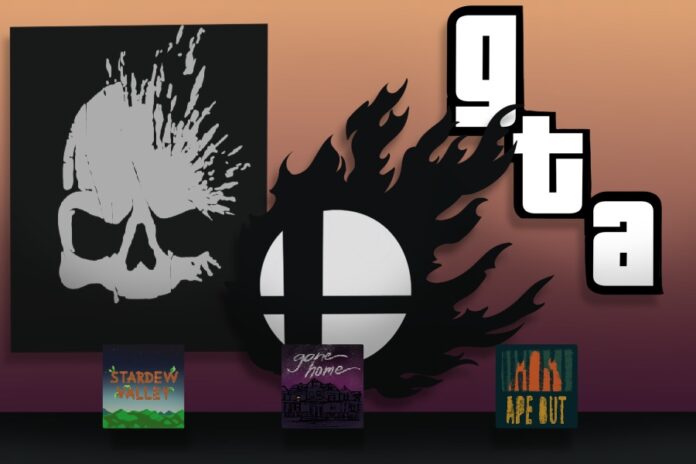Indie games offer thoughtful experiences and support passionate creators who build them
I haven’t played nearly enough indie games in my life. Growing up, I was never exposed to indie games (or even knew what an indie game was), so my experience with them has only come recently. My overall time spent with them has led me to one belief — indie games provide experiences that can be found nowhere else in the industry.
Indie games are special, and my time with them certainly is as well. The Fullbright Company’s “Gone Home” brilliantly subverts the horror genre by letting the player explore the organized chaos of a familiar house and pick up clues that lead to one of the best reveals in the history of storytelling. “Emily is Away” and “Emily is Away Too” perfectly encapsulate what it was like to nervously instant message a highschool crush. Nostalgia will never hit you so hard in your life. And “Florence” artfully depicts the start, highs and lows of a relationship (with a beautiful soundtrack) better than any movie or show I’ve ever seen. These are genres and stories never even thought of on the AAA scale. These experiences are only made possible through the tender care and love that are poured into these titles.
Indie games don’t just offer different experiences to seasoned gamers; they are often the best place to start playing, for new or returning gamers.
Support for independent developers is vital for the long-term health of the industry. Countless major studios in the industry today were once a struggling, independent studio. The beginning of the industry looked remarkably like the state of indie games now. Small, independent developers with less than a dozen members are what make up the majority of the industry. They are the first stages in the life cycle of studios. Look at the best regarded game studios out there –– the Naughty Dogs, Insomniac Games, Sucker Punch, Obsidian Entertainment, etc. –– all of these originated as independent studios. But indie games don’t get nearly as much publicity or attention as major developers because they don’t have the money to pay for it. Thatgamecompany was lucky to have a three-game deal with PlayStation, which gave it the exposure it needed to make “Journey,” a game of the year contender in 2012.
In recent years, the biggest players in the market — Nintendo, Microsoft and PlayStation — have started to notice the capability of independent developers to fill out game catalogs on their platforms and provide plenty of experiences for the player.
The bloated budgets of massive AAA games often leads to an obtuse experience for the player. These massive AAA games become too expensive to make and encounter so much demand to be made in a timely manner that they lead to massive problems of crunch in the industry. We have seen this issue recently with Rockstar Games and Riot Games, which resulted in 100 hour work weeks.
But, by supporting independent developers and buying their games, you know that your money isn’t going straight to a corporation that will encourage crunch. Sure, indie games take a lot of hard work to make and are ultimately not immune to crunch culture, but a majority of the profit goes straight back to the developer. And the reward for a small studio’s work can be everything. Eric Barone, solo creator of indie hit “Stardew Valley,” has made more than 30 million dollars from one game alone. But that is far from reality for most indie games.
Supporting independent developers is equitable to taking care of the mom and pop shops of America — if we don’t do it ourselves as consumers, there won’t be many others who can. And if locally-run stores aren’t successful enough, they can very easily be run out of business by the giant Wal-Mart corporations of the world. The same is true for independent developers, whose every game could be their last. The next time you go to buy the next big, annual iteration in the same AAA series, take a look at the best indie games available and try to support those who really need it as well.
The only way we can move forward in the industry is by supporting and encouraging unique experiences that differ from what we already know as gamers. Elevating these experiences is what will give us new ones. And we are already seeing hints that some of the major platforms recognize that, with the way that Nintendo and PlayStation have recently pushed for indies on a larger stage. Some of my most memorable experiences in recent years have come from games like “Gone Home,” “Emily is Away” and “Journey” — and the reason they were so memorable was because of the incredibly unique experience they provide through the independent, unsullied lens of their developers.
Written by: Calvin Coffee — cscoffee@ucdavis.edu
Disclaimer: The views and opinions expressed by individual columnists belong to the columnists alone and do not necessarily indicate the views and opinions held by The California Aggie.





